Do You Need Permits to Remodel a Bathroom?
TLDR;
Yes, you typically need permits to
remodel a bathroom if your project involves structural changes, plumbing modifications, or electrical updates. However, minor cosmetic changes like painting, replacing fixtures, or updating flooring usually don’t require one.
Why Bathroom Remodels Often Require Permits
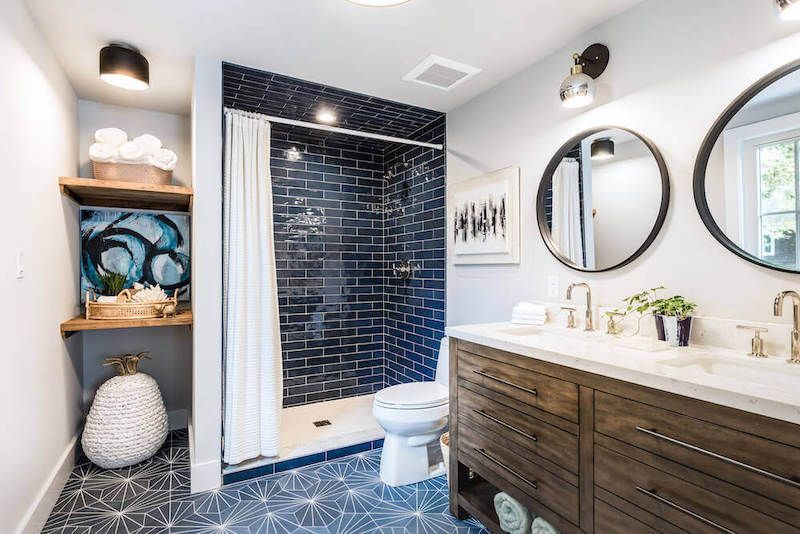
Remodeling a bathroom may seem like a straightforward job—but many upgrades trigger legal requirements that homeowners or contractors can't ignore. At Compassion Construction, we help clients avoid costly missteps by understanding local regulations from the start.
Why permits matter:
- They ensure your remodel meets building safety standards
- They protect you from legal and financial consequences
- They're often required by lenders, insurers, and future homebuyers
Understanding Building Codes
Each city or county has its own building codes that dictate what type of work requires inspection or approval. These codes cover:
- Structural integrity
- Electrical safety
- Plumbing functionality
- Ventilation and fire prevention
Ignoring them can result in:
- Fines or stop-work orders
- Delays in selling your home
- Required demolition of completed work
Permit Benefits (Insurance, Resale, Safety)
- Insurance Coverage: If something goes wrong—like an electrical fire—your insurer may deny claims if the work wasn’t permitted.
- Resale Value: Future buyers often require permit records before closing.
- Safety & Compliance: Inspections ensure everything’s up to code, which protects your family and property.
Projects That Typically Require a Permit

In general, if the remodel involves altering systems behind the walls, you'll likely need a permit.
Structural Changes (Walls, Layouts, Doorways)
- Moving or removing walls
- Changing the room’s footprint
- Adding new doorways or enlarging old ones
Plumbing Work (New Lines, Relocations, Hot Water Access)
- Adding or moving a sink, toilet, tub, or shower
- Installing new water lines or drainpipes
- Rerouting hot/cold water access
Electrical Updates (Wiring, Ventilation, Lighting)
- Adding outlets or switches
- Installing light fixtures or exhaust fans
- Updating wiring for GFCI compliance
HVAC Adjustments (Vents, Exhaust Fans)
- Installing or moving bathroom ventilation
- Connecting new ductwork
City-Specific Examples (CA, FL, TX)
- California: Permits often required even for exhaust fan installation due to strict energy codes
- Florida: Plumbing and waterproofing regulations are tightly enforced
- Texas: Electrical and plumbing work generally requires a licensed professional and permits
Bathroom Updates That Often Don’t Need a Permit
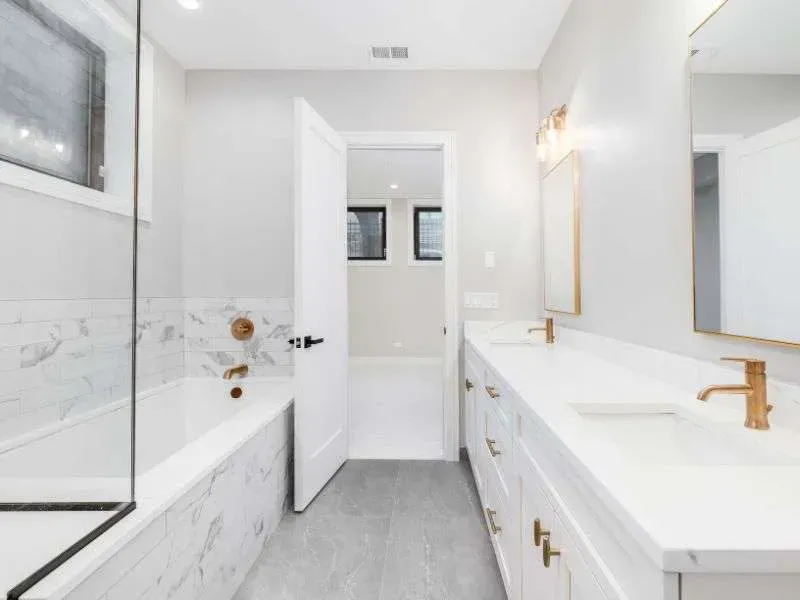
Certain projects are considered cosmetic and don't trigger permit requirements.
Swapping Fixtures (Like-for-Like)
- Replacing a toilet or faucet (same location)
- Installing a new vanity with the same plumbing setup
Cosmetic Touchups (Paint, Mirrors, Vanity Replacements)
- Painting walls or cabinetry
- Installing mirrors, towel bars, or shelves
- Replacing countertops that don't affect plumbing
Minor Electrical or Plumbing (e.g., Replacing Faucets)
- Changing light bulbs or simple fixture swaps
- Replacing a showerhead
Always double-check with your city building department, even for “minor” updates.
Local Regulations and How They Vary

Permit requirements can drastically differ depending on your location.
State-Specific Rules (e.g., California vs. Texas)
- California: Title 24 mandates energy-efficient lighting and ventilation upgrades
- Texas:
Often more lenient, but cities like Austin have stricter policies
- New York: Plumbing permits are almost always required, even for small jobs
Urban vs. Rural Guidelines
- Urban Areas: Tighter zoning laws, inspection schedules, and permit rules
- Rural Areas: Some counties have looser enforcement, but still follow state code
County or City Websites (Encourage Checking Local Building Dept)
- Visit your local building department’s website
- Look up “bathroom remodeling permit” under residential permits
- Call or email to confirm your specific requirements
HOA and Condo Association Requirements
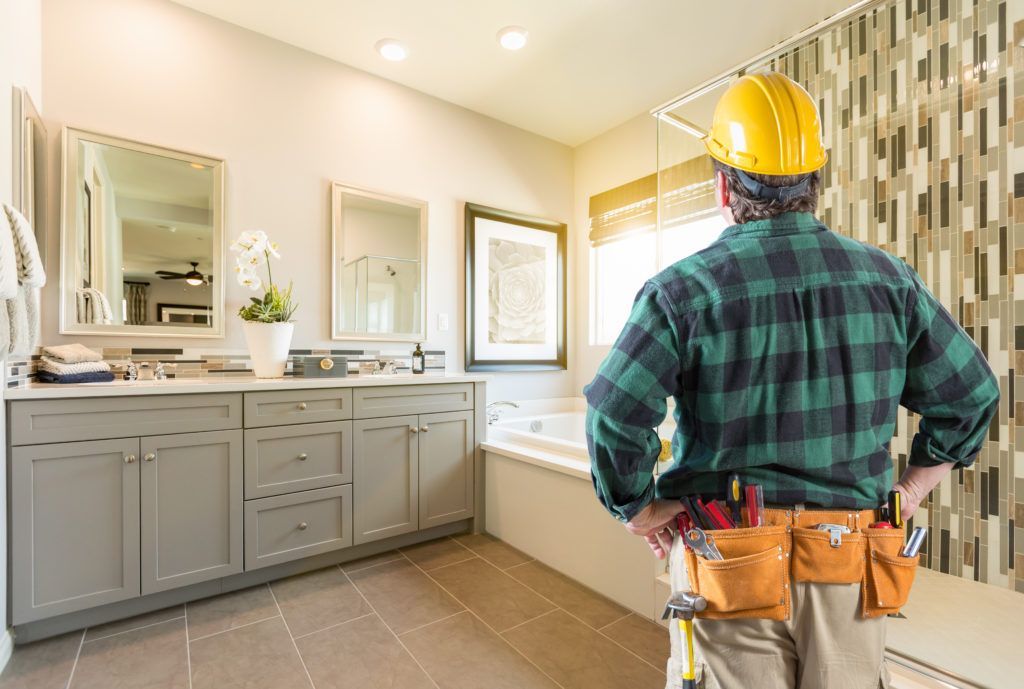
If you live in a community governed by a homeowner’s association or condo board, you’ll face an extra layer of oversight.
HOA Rules vs. City Permits
- HOAs may require prior approval, even for cosmetic work
- You may still need city permits, even if the HOA signs off
Working Within Shared-Structure Buildings
- Multi-unit buildings often require notification or coordination with neighbors
- There may be limits on working hours, noise, or plumbing access
Permit Costs and Timeline Expectations
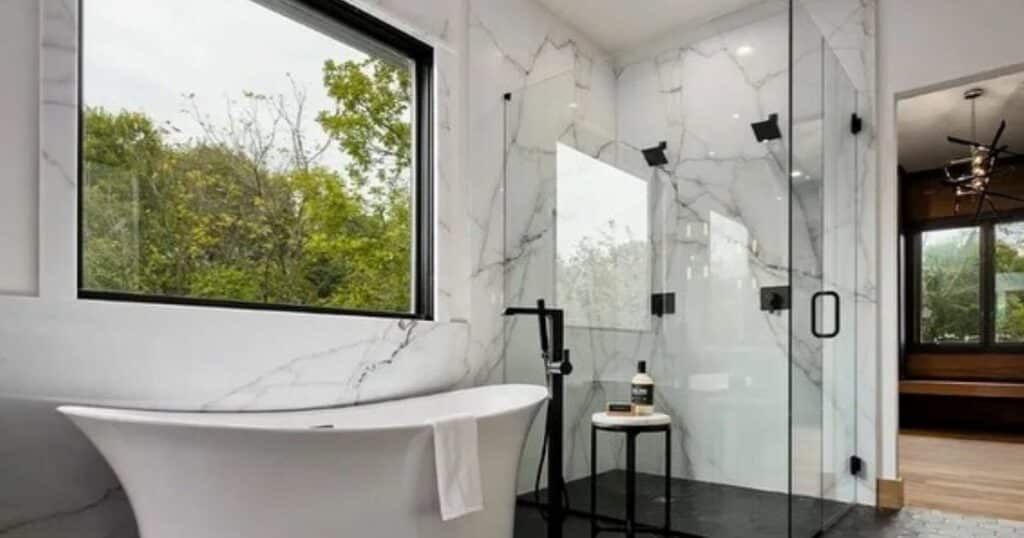
One of the most common concerns is the cost and time involved.
Typical Permit Fees by Region
- $100–$300: For most single-room remodel permits
- Up to $500+: For multi-trade permits (structural, plumbing, electrical combined)
- Fees vary by city, size of project, and scope
Timeline from Application to Approval
- Simple over-the-counter permits: 1–5 business days
- Complex remodels needing plan review: 2–6 weeks
- Add inspection scheduling time (1–3 days after each milestone)
Contractor Costs for Pulling Permits
- Contractors may charge a flat fee or include it in project pricing
- Compassion Construction typically manages the permit process as part of your overall remodeling scope
Step-by-Step Guide to the Permit Process
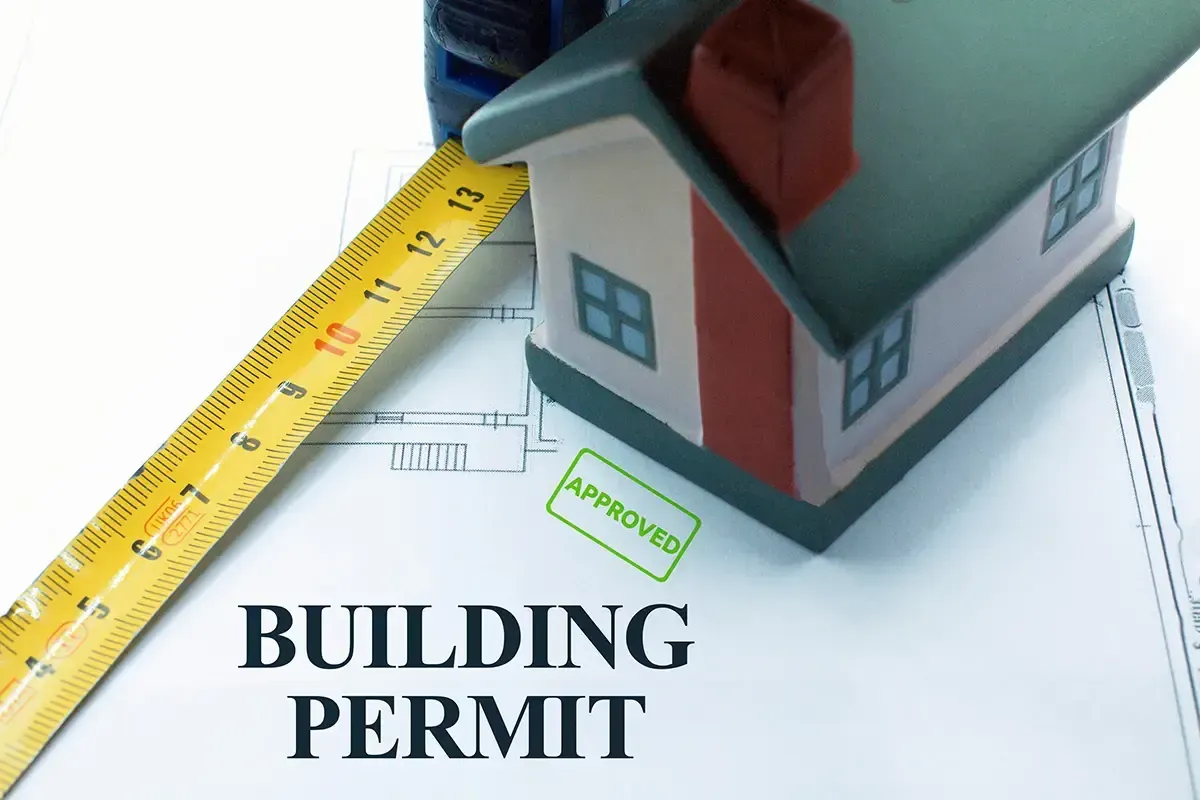
Determine What You Need
- Review your project scope
- Ask your contractor or building department for input
Prepare Documents and Diagrams
- Floor plans
- Material specs
- Scope-of-work descriptions
Submit Application (Online or In-Person)
- Many cities offer e-permit portals
- Fees paid at time of submission
Pass Inspections and Close Out Permits
- Schedule inspections after each major milestone (framing, plumbing rough-in, final)
- Once final inspection is approved, the permit is closed
DIY Bathroom Remodeling — What You Can and Can’t Do
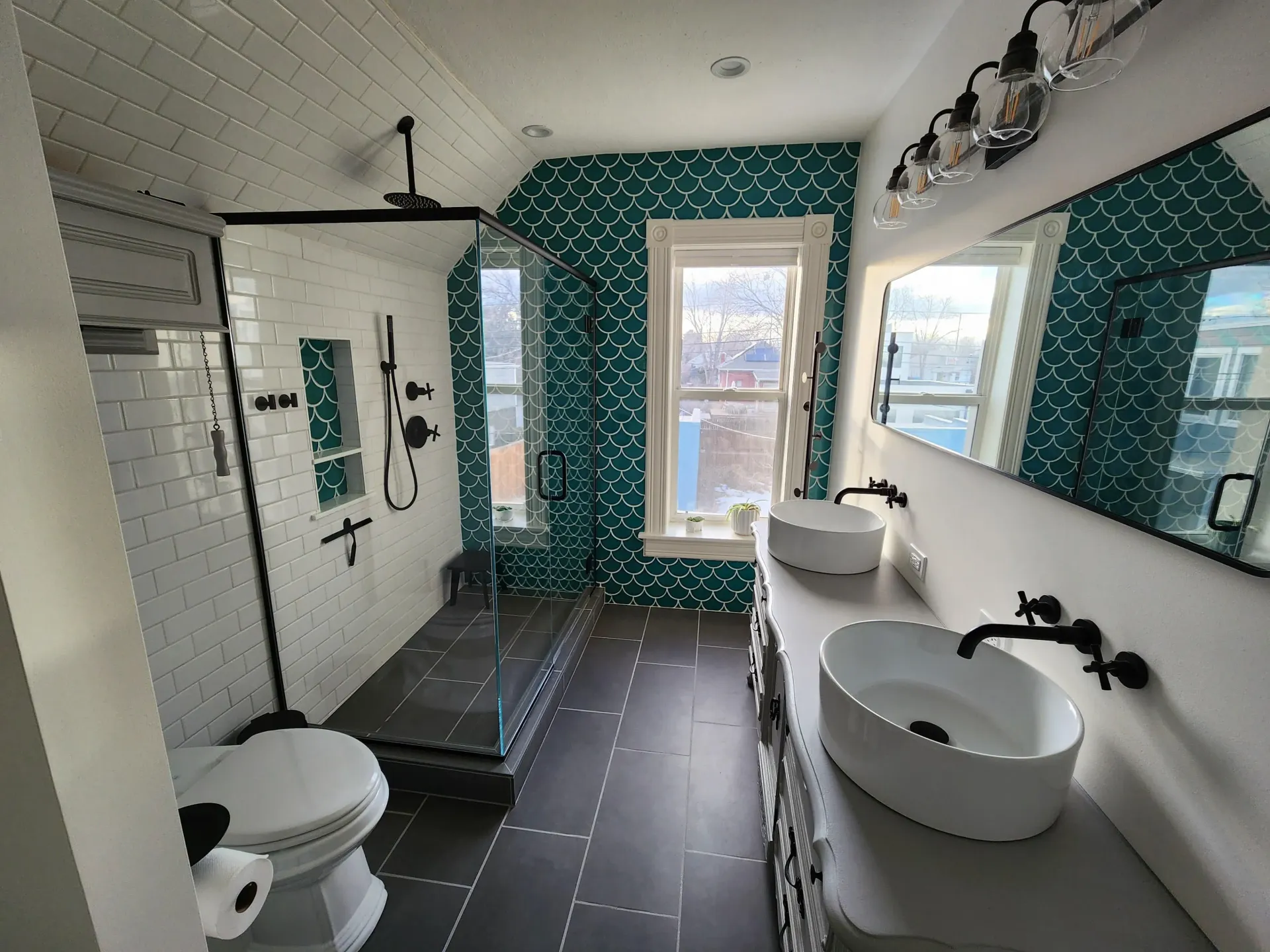
Doing the work yourself? You’re not off the hook.
When DIY Projects Need a Permit
- Any work involving plumbing, wiring, or structure changes
- Some cities allow homeowners to pull their own permits—but not all
Risk of Skipping Permit as a DIYer
- Insurance may not cover damages from unpermitted work
- Legal responsibility falls fully on the homeowner
- Fines and forced removal of work are possible
When to Hire a Licensed Contractor
- If the job involves more than cosmetic updates—especially something like a
Same-Day Remodel—it’s best to hire a pro.
- Licensed pros understand codes, timelines, and inspection requirements
- Compassion Construction ensures your project is built right, safe, and legal
What Happens If You Remodel Without a Permit?

The temptation to skip the red tape can be strong—but costly.
Legal and Financial Risks
- City code enforcement can issue stop-work orders or fines
- You may have to undo or redo completed work
Impact on Insurance Coverage
- If a fire or flood occurs due to unpermitted work, insurers may deny your claim
Trouble During Home Sale or Appraisal
- Unpermitted remodels must be disclosed
- Can delay or kill a sale
- May lower appraisal value
Frequently Asked Questions






